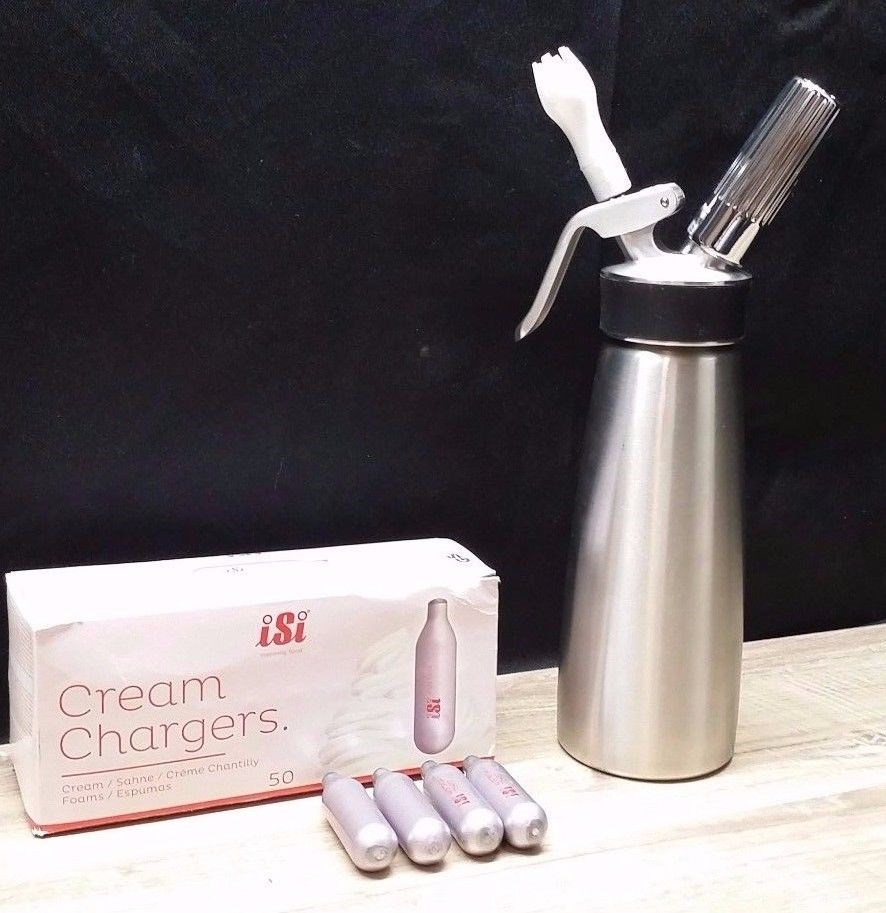A Richmond ER doctor is warning about the dangers of inhaling nitrous oxide (N2O) after treating a 20-year-old woman who experienced hallucinations stemming from daily use of “whippits.”
According to a report published this month in the B.C. Medical Journal, Dr. Matthew Mo Kin Kwok — one of the report’s authors — treated a young Asian woman who came to emergency at Richmond Hospital because she was worried for her safety.
The woman was experiencing auditory and visual hallucinations, agitation and had issues walking, according to the report.
The high from whippits, which produces a dissociative state, typically lasts one to two minutes, according to the report.
As a result of her hallucinations, she was also concerned about an imaginary “transmitting” device in her throat, which she believed was making her legs weak and from which she heard voices telling her to kill herself.
N2O easily accessible
Commonly known as “laughing gas,” N2O is used in a medical setting for purposes such as anaesthesia or sedation.
It’s also commercially available in canisters known as whippits, which are used as a foaming agent in whipped cream dispensers. Whippets can be purchased over-the-counter or online regardless of age, medical history or intended use.
The N2O in over-the-counter whippits is the exact same as what’s used for medicinal purposes.
The woman had no history of psychiatric or medical illness, according to the report, had stable vital signs and showed no sign of head trauma. Other medical tests came back normal.
However, said the report, she told doctors that she inhaled nitrous oxide on a daily basis.
“She had increased her use recently and was inhaling gas from approximately 100 whippits per day,” reads the report.
The patient told doctors she bought the canisters legally using a shopping app and showed the physician the website she used when making the purchases. She did not report any other prescription or recreational drug use.
“A psychiatrist, a neurologist and an addiction medicine physician assessed the patient in consultation and agreed that she was psychotic as a result of N2O use,” reads the report.
And according to the report, the authors found that a package of 100 canisters could be purchased online for less than $100, or $1 per canister.
Lack of reporting a concern
According to the report, there were multiple barriers when it came to reporting the woman’s case.
First, it was difficult to determine which authority to report the case to. For example, if the use of the chemical was medicinal, health care providers would need to report to the Canada Vigilance Program.
But if the chemical comes from a product used for whipped cream, the case should be reported to Health Canada Consumer Products and Cosmetics.
But the response from those authorities was also an issue.
“In response to our report, a Health Canada representative explained that consumer products and cosmetics would document the misuse but only take further action if the (nitrous oxide) canister had faults or hazards regarding its intended use, which is making whipped cream,” reads the report.
The report’s authors were “surprised” to learn that no cases of nitrous oxide misuse had been reported to Health Canada and only one case of substance abuse was reported to the Canada Vigilance Program.
The authors also contacted the B.C. Drug and Poison Information Centre, which informed them that the organization had received 14 calls about nitrous oxide toxicity from misuse of whippets or similar commercial products between 2015 and 2019.
“Since our investigation determined that Health Canada received only one report of N2O misuse in this period, many incidents appear to have gone unreported,” reads the report.
In 2017, the News reported how a 23-year-old Richmond man was almost paralyzed after overdosing on N2O, having bought the gas on WeChat.
At the height of his addiction, the man inhaled more than 1,000 eight-gram cartridges of nitrous oxide every day for two months.
He also said he experienced delusions, such as someone chasing him while he was driving or someone was going to hurt him.
According to Kwok’s report, Health Canada considers N2O to be an “unscheduled non-prescription professional use” product.
“This raises an important question,” reads the report. “If N2O used medicinally is deemed to require health care provider involvement, why is the purchase of N2O used commercially not restricted in any way given the potential impact on consumers?”
Some possible solutions to a lack of awareness around N2O toxicity and its possible serious effects, according to the report, are adding safeguards to minimize harm and encouraging intervention from authorities to prevent misuse.
In a release from Vancouver Coastal Health, Kwok also said both doctors and the public need to be more aware of the possible outcomes of inhaling whippits.
“When people present at the emergency department with unexplained neurological symptoms it’s important for clinicians to consider nitrous oxide as a possible cause,” said Kwok.
“It’s also important for users to know that using this product outside a supervised medical setting can cause serious health effects.”



